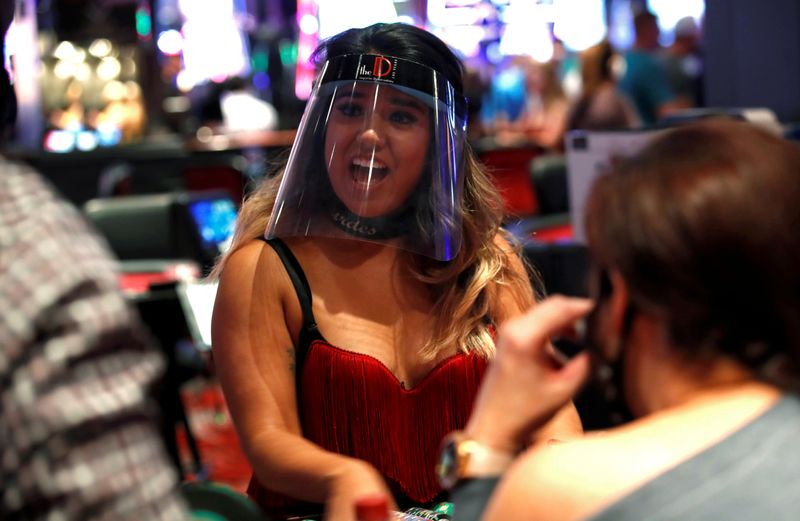SAN FRANCISCO (Reuters) - Even as the U.S. economy shows early signs of emergence from the coronavirus recession, the state of Nevada illustrates both why a full recovery may still be years away and why Congress will likely need to deliver more fiscal aid.
"Nevada is ground zero for this, really," Federal Reserve Chair Jerome Powell told the Senate Banking Committee on Tuesday, in the first of two back-to-back appearances before Congress this week.
At 28%, Nevada's unemployment rate is the highest in the country.
Home to the gambling and entertainment mecca of Las Vegas, much of the state's $169 billion economy is built on travel, entertainment, restaurants, bars, and hotels - all industries hit hard in the pandemic because they rely on large numbers of people congregating, exactly what individuals are loath to do as long as there is no treatment or vaccine for the highly infectious and sometimes deadly novel coronavirus.
Nationally, the nation's economy has probably bottomed, Powell said on Tuesday, with some economic data, including retail sales, showing unexpected strength in May.
Nearly $3 trillion of fiscal aid passed by Congress in March "has had a real effect," Powell said.
But with a full recovery likely elusive until people are more confident they are safe from infection, places like Nevada illustrate the need for Congress to do more.
"There are going to be a lot of people going back to work in coming months, but there are going to be a lot of people who can't," Powell said. "If they work in Nevada in the travel and entertainment industry, there just aren’t going to be jobs...some form of support for those people going forward, in my view, is likely to be appropriate."

Investment in mass testing, he said in answer to a different question, would also deliver "very high returns" for the economy by boosting confidence.